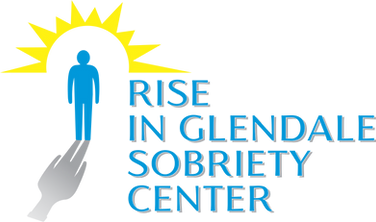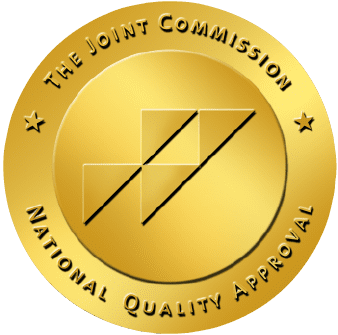Cognitive-Behavioral Therapy
In Glendale
Welcome to Rise Sobriety Center in Glendale, a beacon of hope for those grappling with addiction. Our center specializes in Cognitive-Behavioral Therapy (CBT), a highly effective treatment approach that addresses the underlying thought patterns fueling addictive behaviors. By choosing CBT at our facility, clients embark on a transformative journey towards recovery, equipped with tools to maintain long-term sobriety and improve overall mental health.
What is
Cognitive-Behavioral Therapy?

Cognitive-Behavioral Therapy is a form of individual therapy that has shown remarkable efficacy in treating a variety of psychological issues, including substance abuse, depression, anxiety, and more. The core principle of CBT is that psychological problems are partly based on faulty or unhelpful ways of thinking and learned patterns of unhelpful behavior. Therapists help clients to develop personal coping strategies that target solving current problems and changing unhelpful patterns in cognition.
How CBT Works
in Addiction Treatment
Numerous large scale trials have proven CBT to be effective in treating individuals with substance use disorders. In the context of addiction, CBT sessions are tailored to help individuals challenge and change their harmful beliefs, behaviors, and negative emotions, and replacing them with healthy, sober alternatives and coping skills. The therapy focuses on identifying the triggers that lead to drug or alcohol use, confronting these triggers, and applying new ways of thinking to prevent relapse. Techniques such as role-playing, stress reduction exercises, and mindfulness are commonly utilized to reinforce sobriety.
Benefits of CBT in Treating Substance Abuse
Cognitive-Behavioral Therapy (CBT) provides a powerful framework for addressing the complex interplay of thoughts, emotions, and behaviors that characterize substance abuse. Here are some detailed benefits:
- Emotional Regulation: One of the most significant challenges for individuals struggling with substance abuse is managing their emotions. CBT teaches techniques for identifying and understanding emotions, which helps individuals develop healthier ways to cope with stress, anxiety, and depression without resorting to substance use.
- Craving Reduction: CBT equips individuals with strategies to reduce cravings, which are often a primary relapse trigger. Techniques such as distraction, delay, and the decision-making process help clients learn to pause and make a conscious choice rather than impulsively acting on cravings.
- Trigger Management: Through CBT, individuals learn to recognize the environmental or emotional cues that lead to substance use. Once these triggers are identified, therapists work with clients to develop avoidance strategies or to change their reaction to these triggers through coping skills training.
- Improvement in Self-Efficacy: CBT helps build confidence in individuals’ ability to cope with challenging situations without substances. This is achieved through gradual mastery of new skills and reinforcing the individual’s belief in their ability to change.
- Enhanced Problem-Solving Skills: Individuals learn to better solve problems that may lead to stress and substance use, such as interpersonal conflicts or challenging situations at work or home. This not only reduces the likelihood of relapse but also improves overall life satisfaction and functionality.
CBT Techniques Employed at Rise Sobriety Center
At Rise Sobriety Center, we employ a variety of CBT techniques tailored to meet the unique needs of our clients. These techniques are designed to dismantle the addiction cycle and promote lasting recovery:
- Cognitive Restructuring: This foundational CBT technique involves identifying and challenging negative and often distorted thoughts (cognitions) that can lead to substance abuse. By examining the evidence for and against these thoughts and considering alternative viewpoints, clients learn to develop more balanced and accurate thinking patterns.
- Behavioral Experiments: Clients test their beliefs through experiments that can either confirm or refute their fears associated with substance use. For example, a client might experiment with turning down a drink at a social event to see if the anticipated negative outcomes (like social rejection) actually occur.
- Mindfulness and Relaxation Techniques: These practices are integral to helping clients focus on the present moment and manage stress without substance use. Techniques include guided imagery, breathing exercises, and progressive muscle relaxation, all of which enhance mindfulness and reduce the physiological symptoms of stress and anxiety.
- Exposure Therapy: This technique involves gradual, controlled exposure to the situations, objects, or experiences that trigger cravings, without engaging in substance use. This helps reduce the fear and power these triggers hold over the individual.
- Skills Training: Clients are taught specific skills to handle challenging situations. These might include assertiveness training, time management, and social skills, which help reduce the reliance on substances as a coping mechanism.

CBT
For Addiction
At Rise Sobriety Center, our Cognitive-Behavioral Therapy (CBT) program is adeptly tailored to address a wide range of addictions, recognizing that each type of addiction presents its own unique challenges and requires specific strategies for effective treatment. Here’s how CBT is applied to various forms of addiction:

Alcohol Addiction
For individuals struggling with alcohol dependence, CBT focuses on identifying the situational and emotional triggers that lead to drinking. Techniques like urge surfing, where individuals learn to ride out their cravings without giving in, and developing alternative coping mechanisms that do not involve alcohol consumption, are key components. CBT also helps individuals explore the consequences of continued drinking, enhancing motivation for change and recovery.

Drug Addiction (Including Prescription Drugs)
Drug addiction treatment with CBT involves a detailed assessment of the patterns and contexts of drug use. Therapists work with clients to break down the automatic thoughts and behaviors that lead to substance use. Cognitive restructuring helps clients challenge the justifications they often use to rationalize drug use, replacing these with healthier thought patterns. Additionally, practical skills, such as refusal skills and relapse prevention strategies, are taught to help manage situations where drug use might be tempting.

What to Expect
At Rise Sobriety Center
Your journey with Cognitive-Behavioral Therapy (CBT) at Rise Sobriety Center begins with a supportive and informative first session. Here’s a brief overview of what to expect:
- Welcoming Environment: Upon arrival, you will be welcomed into a comfortable and safe setting, designed to make you feel at ease.
- Initial Assessment: The session starts with a comprehensive assessment where your therapist will gather information about your substance use history, mental and physical health, and any previous treatments. This helps in crafting a personalized therapy plan.
- Goal Setting: You and your therapist will set clear, achievable goals for your therapy, tailored to address your specific needs and recovery aspirations.
- Introduction to CBT: Your therapist will explain the principles of CBT and how it will be applied to help you manage and overcome addiction. You’ll learn about the connections between thoughts, feelings, and behaviors and how modifying these can aid in recovery.
- Building Rapport: Establishing a trusting relationship with your therapist is a key focus of the first session, as it’s crucial for effective therapy.
- Therapy Process Overview: You’ll receive a detailed outline of what to expect in future sessions, including the techniques to be used and your role in the treatment process.
- Homework Assignments: Expect to receive your first homework assignment to start applying what you’ve learned and begin the process of change outside the therapy sessions.
- Support and Encouragement: You’ll be reassured that support is always available and encouraged to discuss any concerns about the therapy or your recovery journey.
The skills developed through CBT have long-standing benefits that extend beyond overcoming addiction. They include improved mental health, better stress management, and enhanced relationships, contributing to a sustained, fulfilling life of sobriety.

We're Committed to
Your Recovery
Choosing Cognitive-Behavioral Therapy at Rise Sobriety Center is a powerful step toward reclaiming your life from addiction. With a team of dedicated therapists and a proven treatment approach, we are here to support you every step of the way. Reach out today, and embark on your path to recovery and wellness.
Your Journey to Living a Life Free of Addiction, Starts Here!
Frequently Asked
Questions
The success rate of CBT in treating addiction varies depending on several factors including the type of addiction, the individual’s commitment to treatment, and the presence of any co-occurring disorders. Generally, CBT is considered one of the most effective therapy modalities for addiction, with studies showing that it significantly improves the chances of maintaining long-term sobriety when compared to treatments that do not involve behavioral therapies.
The duration of CBT can vary based on the individual’s specific needs and goals. Typically, CBT for addiction treatment at Rise Sobriety Center lasts between 12 to 16 weeks, with sessions held once or twice a week. However, some individuals may require a longer duration to address deeper issues or co-occurring disorders.
Yes, you can participate in CBT while on medication. In fact, combining CBT with medication, particularly for certain types of addiction and mental health disorders, can enhance treatment effectiveness. At Rise Sobriety Center, our therapists work closely with medical professionals to ensure a coordinated approach that safely integrates therapy and pharmacological treatment.
Our CBT therapists are licensed professionals who have specialized training in cognitive-behavioral therapy. They typically hold degrees in psychology, counseling, or social work, and have additional certifications specific to CBT. Continuous education is also a priority at our center, ensuring that our therapists stay updated with the latest research and techniques in addiction treatment.
CBT is effective for a wide range of addictions and is particularly beneficial if you find that your addictive behaviors are influenced by negative thought patterns and behaviors. During your initial assessment at Rise Sobriety Center, our therapists will evaluate your specific situation to determine if CBT is the most suitable treatment approach for you. This evaluation includes discussing your addiction history, mental health status, and personal treatment goals.

